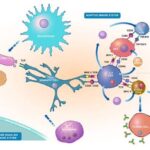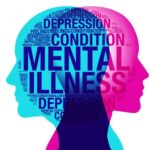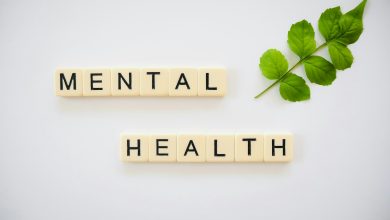5 Ways Depression Affects Your Immune System

Depression not only affects your state of mind but also your feelings and emotions. This mental health condition has the potential to take control of your body. In India, depression is likely the mental health condition that is least well understood by the general population. The effects that depression has on both the mind and the body are sometimes dismissed as nothing more than a “sad phase” that will pass on its own. However, depression may have serious long-term consequences. However, the reality is that depression is not “just a phase,” and that it genuinely causes changes in the brain. As a result, it requires medical treatment in order to be treated effectively. In addition to this, did you know that serious depression may also interfere with the way your body works, wreaking havoc on everything from your immune system to your heart?
In point of fact, the following is a list of ways from Gratitude Lodge that shows how depression may damage your body:
- Depression can cause inflammation in the body
Both stress and depression maintain a close link with one another. According to the findings of a study that was conducted in 2010 and published in the journal Current Immunology Review, chronic stress can cause a series of changes in the way that the hypothalamus, pituitary gland, and adrenal gland interact with one another, which can lead to feelings of anxiety and depression. Both chronic stress and depression are known to promote inflammation in the body and impair the immune system. As a result, it is important to treat either condition as soon as possible. There are a lot of researchers looking into whether or not chronic inflammation is the root cause of depression, or whether or not depression is the root cause of chronic inflammation.
- It also causes changes in weight
Alterations in appetite are one of the most obvious signs that someone is suffering from depression. It’s common for people who struggle with depression to either consume too little or too much food. Because of this, it is possible for them to experience rapid shifts in their weight. This may put a significant amount of strain on the heart, have an effect on fertility, and open the door to a wide variety of other health problems.
- Depression is bad for your heart
This may be attributed to the increased levels of stress that persons with depression endure. When you are under persistent stress, your body secretes the hormone cortisol, which in turn has a detrimental influence on your blood sugar, cholesterol, and blood pressure levels. These are all factors that increase one’s likelihood of developing cardiovascular illnesses.
- Your sexual desire is severely dampened as a result.
People who suffer from depression often note a decrease in their sexual desire, and they may find it difficult to get aroused readily. In point of fact, it may be difficult for them to attain an orgasm on a regular basis. But what exactly does a lack of desire have to do with depression? Although a number of studies are now looking at the possibility of a connection between the two, there is as of yet no conclusive scientific evidence that explains why or how depression might have an effect on libido.
- Depression also impacts your digestive system
Your digestive system, particularly your stomach and intestines, are highly dependent on the proper operation of your brain. It’s possible that this is the reason why so many individuals have the urge to defecate or experience diarrhea when they’re anxious about something. It goes without saying that those who suffer from anxiety and, yes, even depression, are in a far worse position. According to an article published by Harvard Health Publishing, when your brain is upset, such as when you are suffering from depression, it can send signals to your gut and intestines, causing an upset stomach even though there is no physical cause for it. This can happen when your brain is suffering from something like depression.
Depression is capable of doing more than simply affecting your mood and feelings, despite the common misconception that this is the only thing it does to a person. It may begin in the brain, but it can actually screw with your whole body. Therefore, you shouldn’t brush off the signs and symptoms of depression. Immediately seek assistance from a trained specialist.





